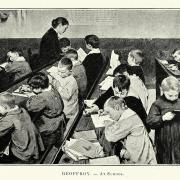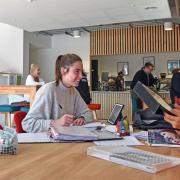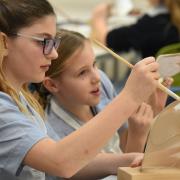While revision is vital for exam preparation, it shouldn’t be all hard graft for teenagers. Lisa Salmon looks at how playing games could help studying too
Experts suggest that one unusual study element to help with revision could be playing traditional games and puzzles during study periods - in moderation, of course. These also have a practical, skill-linked element too as it is thought board games can help set young people up with valuable life skills including improving memory and organisational and strategic thinking, and boosting social skills.
Mix it up
Educational psychologist Dr Kairen Cullen explains: “Our brains thrive on variety and stimulation and sitting for hours in front of written text can certainly dull the appetite for learning, so the addition of traditional and computer-based games, social interaction and physical activity is to be encouraged.”
Games such as Monopoly, Scrabble, bingo and chess can provide a quality cognitive workout while being a good, socially interactive way to unwind. In addition, solo mindbenders such as Sudoku and cryptic crosswords can improve cognitive dexterity while constructively distracting less outgoing teens from stress without forcing them to join in socially.
Outdoor games - weather permitting - can help teenagers’ brains function and improve their mood. Studies have shown that exercise not only aids memory (possibly by boosting blood flow to the brain), but may even improve results if done just before an exam. Plus, exposure to sunlight is thought to increase the brain’s release of the hormone serotonin, associated with improved mood, calmness and focus.
Here’s a guide to which games will help with different cognitive abilities
• Memory - Any games that enhance visualisation will help memory, says internet psychologist Graham Jones. “One of the best ways of trying to remember facts is to visualise them,” he explains. “A classic technique is to place the facts in picture form on a familiar journey.” Because you easily remember the journey - such as the trip from home to school - you’ll then see the facts pop out as you mentally travel along the route. “So a game that improves visual thinking would be good,” he says, pointing out that video games are an example of this type of game. “They improve visualisation and so help students more easily use the journey technique.” Card games such as poker and Fish are great for flexing memory muscles, and bingo, especially the more complex 75-ball version, can increase recall and may improve concentration and mood. Solo activities, which can challenge your memory, include Sudoku and solitaire.
• Mental dexterity and problem-solving - Many exams require a high degree of mental agility to think through scenarios and solve complex problems. Chess is a good game for considering alternative courses of action and the risks, and poker can also help. Even Monopoly may improve your powers of logical reasoning and decision-making.
• Focus and concentration - Longer strategic games are a great choice if you want to improve attention span. Chess is recognised as one of the best brain-training games, and studies show it’s effective at increasing focus and concentration due to its complex strategic nature. Other games and puzzles which may improve focus include Risk, or one of the new breed of board games such as Carcassonne or Puerto Rico.
• Break it up - Whether indoors or out, encourage regular study breaks, advises Jones. “Another predictor of exam success is how well students break up studying into short periods,” he says. “Those who do 20 minutes, then do something else for 20 minutes and then do another 20 minutes of study, tend to do the best.”



























